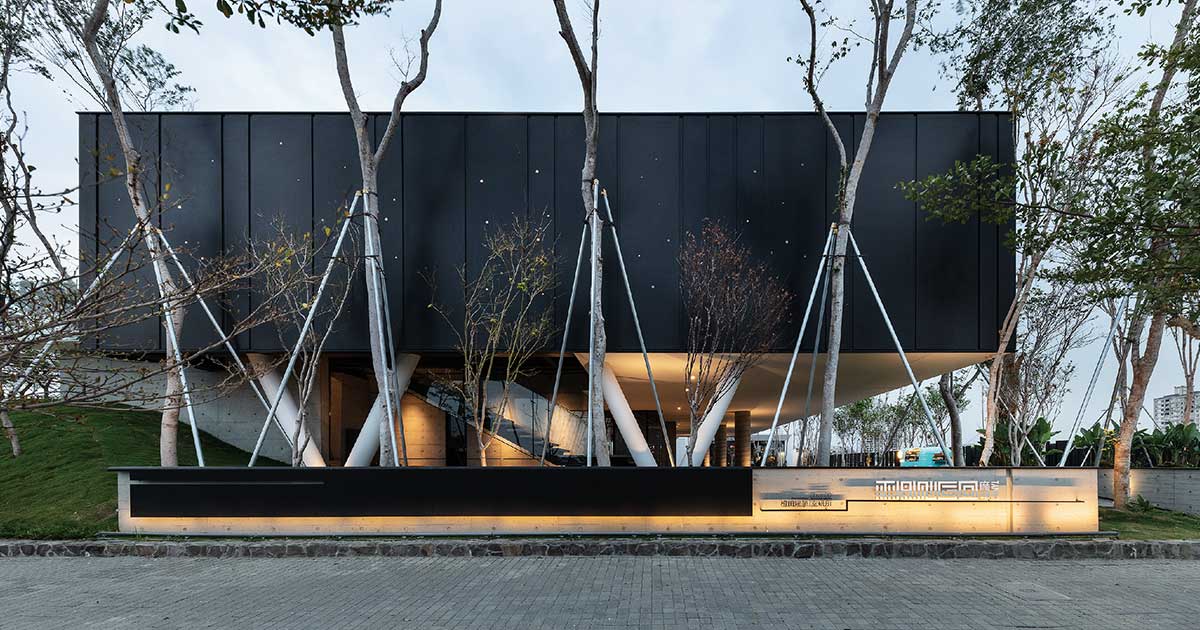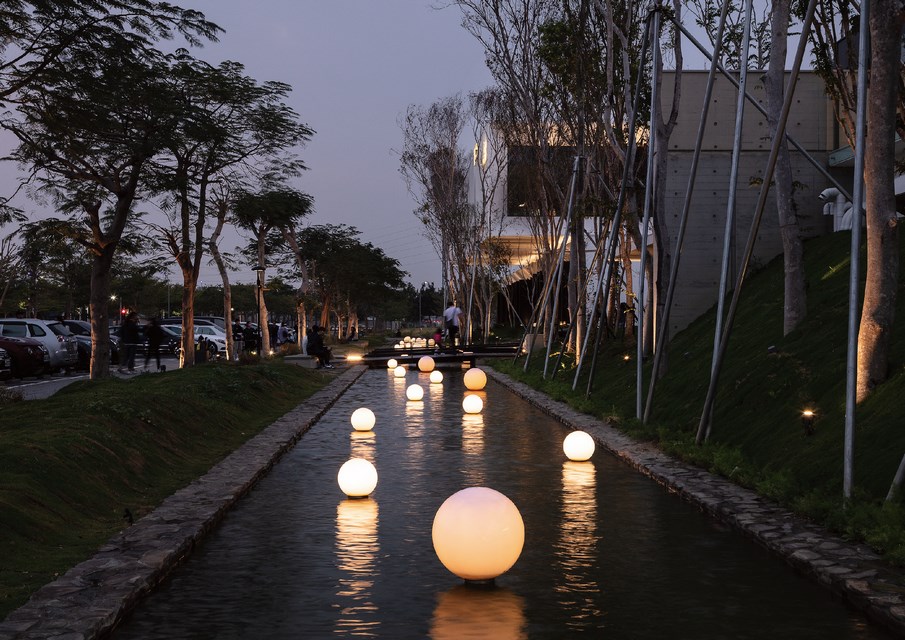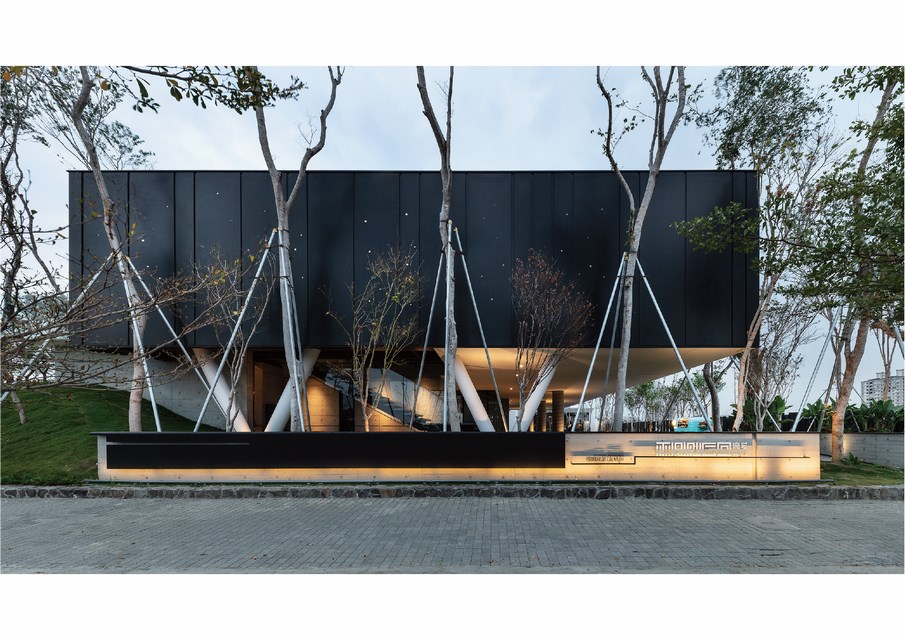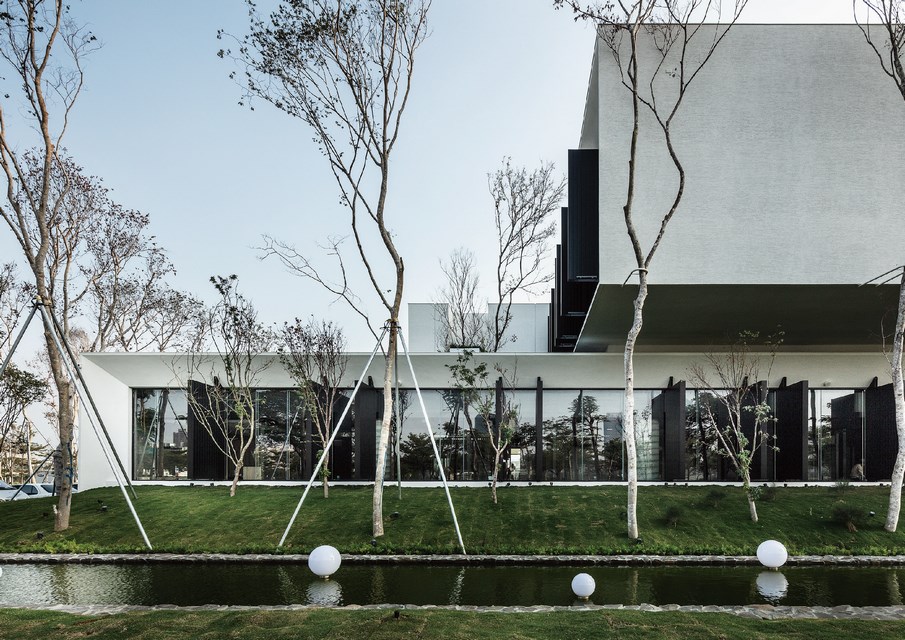The Green Isle by Chain10 Architecture & Interior Design Institute | World Design Awards 2020
Chain10 Architecture & Interior Design Institute: Third Award of World Design Awards 2020. Living in Kaohsiung, a fairly large city, most people never have the time to really appreciate nature. That is why he decided to create a one-of-a-kind space with the Green Isle.
The project is roughly about 5,950m² which allowed the creation of a relatively complete living environment encompassing both a rest and dining space. It occupies a wide stretch of land but unfortunately, the nighttime lighting of this area in Kaohsiung is insufficient meaning any potential project would have to provide sufficient illumination to create its own atmosphere. This lighting would be used as visual landmark and also to highlight the forest-like greenery surrounding the project. The Green Isle was given its name hailing to ages gone by of magical places where you could go to relax and feel refreshed.
At the main entrance of the restaurant, a bridge was placed over the pool to accentuate the mood of guests as they enter. The nearly 120-meter landscape pool gives a strong impression of the building and creates a connection between the building and the water. Surrounding the property are over 250 large trees reducing the carbon emissions from the project and creating the feeling of being transported to another place. Furthermore, lots of greenery helps to filter out the light waves. Leaving us with that relaxing and comforting green light. One of the biggest influences on a building in Taiwan is the high temperatures. A much-underutilized resource is nature, it can be a buffer and help to reduce indoor and outdoor ambient temperatures.
In addition to analyzing different service patterns and finding the best economic model, significant time was spent on environmental sustainability. Even traditionally imported materials like marble were locally sourced to reduce the emissions during transport. A large number of concrete exterior walls were barely painted, decreasing the need for elaborate environmentally detrimental materials. The use of secondary materials also directly reduced the thermal effects and energy consumption of the building. In order to respect the relationship between the building and the green environment, the decorations of the indoor dining area were simplified. There was nothing overly complex or intricate but rather a focus on simple modern choices.
The use of materials inside and outside the building takes into account recycling and sustainability, and the use of materials such as metal is modularized. That will give the client years of efficient replaceability of most components. The glass arboretum is placed in a central location along with some greenery on top of a permeable layer of soil. In addition, this space also increases the possibility of natural light entering the indoors. Contrasting the artificial light source with the natural light source helps to blur the boundary between the interior and exterior space. This gives the consumers more opportunities to fully enjoy the beauty of the natural environment and the aesthetics of indoor artificial lighting.
Throughout the restaurant there are scattered green spaces that bring nature inside for all to enjoy. These spaces are like large terrariums that make people feel like they are outside enjoying a fine-dining experience. The sense of existence is reflected in the changes in light and shadow, which helps to awaken the cherished position of every moment in our lives.
The Green Isle may look like a typical restaurant at first glance but it is paving the way in terms of sustainability and doing its best to reduce its carbon footprint on Kaohsiung and Taiwan. A combination of active and passive techniques enables the building to save energy and ensure sustainability for the long-term future.

Firm: Chain10 Architecture & Interior Design Institute
Architects: Keng-Fu Lo
Category: Hospitality Built
Project Location: Kaohsiung city
Team: Keng-Fu Lo
Country: Taiwan
Photography ©Credit: Chain10 Architecture & Interior Design Institute







